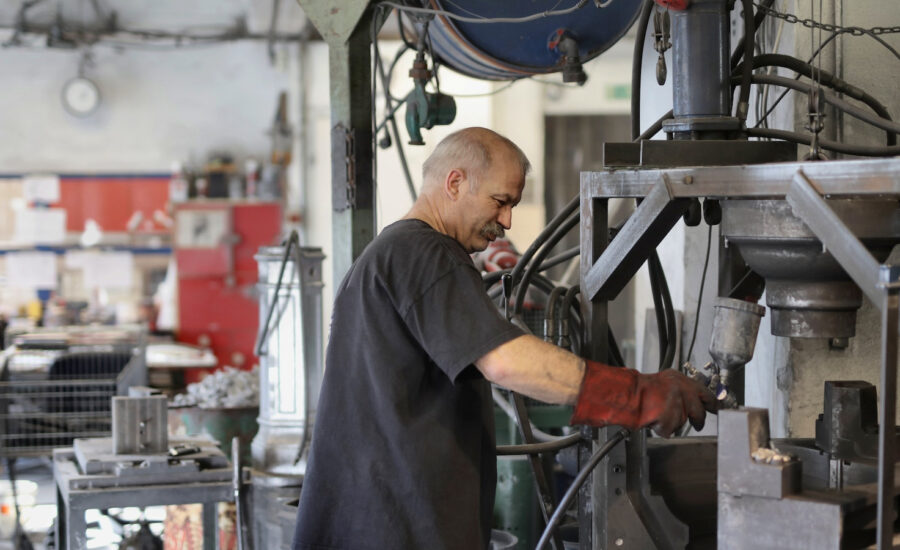Should you collect CPP and OAS while working in your 60s?
If you’re in your 60s and plan to remain in the workforce, here’s what you need to know about applying for your government pensions.
Advertisement
If you’re in your 60s and plan to remain in the workforce, here’s what you need to know about applying for your government pensions.

I have lived in Canada for 24 years and I’m 65 years old now. I am still working at a company making a $78,000 salary. Since my health condition is OK, I am going to continue to work for two to four years. My question is: In my situation, it is better for me to apply for OAS and CPP now or delay to apply for them?
—Simon
You can begin your Canada Pension Plan (CPP) pension as early as age 60 or as late as age 70, Simon. At age 65, you generally need 39 years of maximum contributions to receive the maximum CPP retirement pension. Given you have only 24 years of contributions, there may be a benefit to continuing to contribute and delaying the start of your CPP.
Your $78,000 salary exceeds the maximum pensionable earnings of $64,900 for 2022, so you will contribute the maximum of $3,500 in CPP contributions this year. Your employer will contribute the same.
This will entitle you to about 1/39th more CPP retirement pension, or about $386 per year in today’s dollars, because the best 19 years of your contributions are used to calculate your pension at 65.
As a 65-year-old man, you have a 50% chance of living to age 89. If, instead of contributing to CPP, you invested $3,500 at a 5% rate of return, and withdrew $386 per year (indexed to inflation, like CPP), that same $3,500 would be depleted within 11 years. That would be well before your life expectancy.
So, Simon, it’s probably advantageous to continue to contribute to CPP and delay the start of your pension. Because you are 65, you can opt out of contributing, but you will benefit in your case since you have not made the maximum contributions and your employer matches your contribution amount.
If you were already at the maximum CPP amount, Simon, there could be a benefit to opting out of further contributions or beginning your pension so that your future contributions are eligible for a post-retirement benefit.
To qualify for the maximum Old Age Security (OAS) pension, you generally need to have lived in Canada for 40 years since the age of 18. You have only 24 years of Canadian residency, so will not qualify for the maximum OAS. You can start your OAS pension as early as age 65 or as late age 70.
OAS is subject to an earnings threshold. In 2022, if your income (including OAS) exceeds $81,761, your pension is reduced by $0.15 on the dollar. Given you have a $78,000 salary, if you started your OAS pension, it would be partially clawed back. Your OAS would effectively be taxed at 43% to 53%, including the clawback, depending on the province you live in, Simon.
This clawback is one reason not to apply while you are still working with a moderate to high income. The other is based on your comments about your health. If you are in reasonably good health, deferring your OAS pension, as well as your CPP, is probably advantageous. If you live well into your 80s, you will receive more lifetime income by deferring your pensions.
For each year deferred after 65, CPP increases by 8.4% and OAS by 7.2%. Both pensions are adjusted for inflation each year as well. If you defer, you will receive more cumulative payments—despite receiving fewer years of CPP and OAS—even after adjusting for the time value of money, if you live into your mid-80s and beyond.
There may be cases when a senior needs their CPP or OAS pension to supplement their cash flow, especially if they have no investments or they have high-interest-rate debt. But if you are covering your expenses comfortably, Simon, there could be pension enhancement and income tax advantages to deferring both your CPP and OAS pension until you retire, and possibly until as late as age 70, even if you retire earlier.
Share this article Share on Facebook Share on Twitter Share on Linkedin Share on Reddit Share on Email
2 friends who make minimum wages in Canada for 35 years. they are planning to retire at 70.They are almost 65. What happen with the pension if they die before 70 years old? are the kids who are over 30 and 17, will gave something?. I am 60 and and I work in Canada for over 32 years old and my husband make a good liv8n. i got a kid who is 16. Should Retire at 65 r 70?.
Due to the large volume of comments we receive, we regret that we are unable to respond directly to each one. We invite you to email your question to [email protected], where it will be considered for a future response by one of our expert columnists. For personal advice, we suggest consulting with your financial institution or a qualified advisor.
CPP is not a true pension. The Canadian Government takes all the “ pension” back when you die. Your children get a very small amount. Not enough to bury you. If you die before 90 you will never get all your contributions or that of your employers. The Federal Government hopes we die therefore encouraging for us not to draw on this tax. If it were a true pension I would have my children be the beneficiaries.